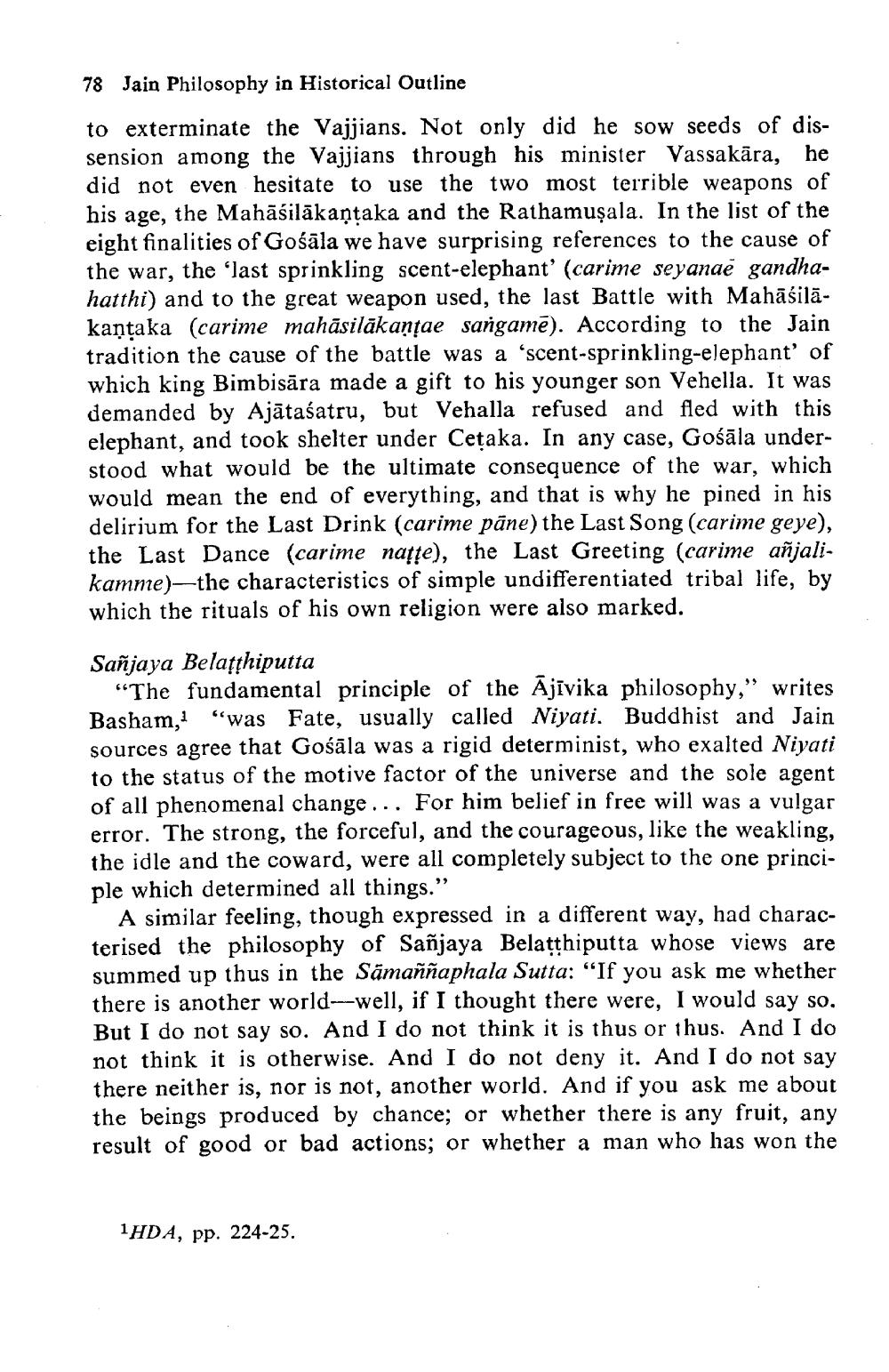________________
78 Jain Philosophy in Historical Outline to exterminate the Vajjians. Not only did he sow seeds of dissension among the Vajjians through his minister Vassakāra, he did not even hesitate to use the two most terrible weapons of his age, the Mahāśilākaņțaka and the Rathamuşala. In the list of the eight finalities of Gośāla we have surprising references to the cause of the war, the last sprinkling scent-elephant' (carime seyanae gandhahatthi) and to the great weapon used, the last Battle with Mahāśilākantaka (carime mahāsilākanțae sangamē). According to the Jain tradition the cause of the battle was a 'scent-sprinkling-elephant' of which king Bimbisāra made a gift to his younger son Vehella. It was demanded by Ajātaśatru, but Vehalla refused and fled with this elephant, and took shelter under Cetaka. In any case, Gośāla understood what would be the ultimate consequence of the war, which would mean the end of everything, and that is why he pined in his delirium for the Last Drink (carime pāne) the Last Song (carime geye), the Last Dance (carime națțe), the Last Greeting (carime añjalikamme)—the characteristics of simple undifferentiated tribal life, by which the rituals of his own religion were also marked.
Sañiava Belatthiputta
“The fundamental principle of the Ājīvika philosophy," writes Basham, “was Fate, usually called Niyati. Buddhist and Jain sources agree that Gośāla was a rigid determinist, who exalted N to the status of the motive factor of the universe and the sole agent of all phenomenal change... For him belief in free will was a vulgar error. The strong, the forceful, and the courageous, like the weakling, the idle and the coward, were all completely subject to the one principle which determined all things."
A similar feeling, though expressed in a different way, had characterised the philosophy of Sañjaya Belatthiputta whose views are summed up thus in the Sämaññaphala Sutta: “If you ask me whether there is another world--well, if I thought there were, I would say so. But I do not say so. And I do not think it is thus or thus. And I do not think it is otherwise. And I do not deny it. And I do not say there neither is, nor is not, another world. And if you ask me about the beings produced by chance; or whether there is any fruit, any result of good or bad actions; or whether a man who has won the
1HDA, pp. 224-25.




